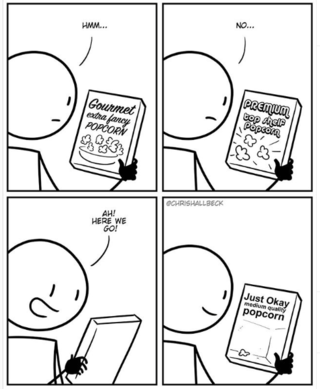Consumers with Low Self-Esteem Choose Inferior Products
Products can make people feel great about themselves. Enjoying an exquisite glass of wine in a fancy bar or walking down the street in a new stylish outfit sure sound like great ways to give your ego a little boost. Yet, why do so many people shop at discounters, get their hair cut at budget salons, or prefer dressing down to go to that dingy bar next doors? Have you ever seen a rundown looking restaurant and wondered, “Why doesn’t this place go out of business?” Who chooses inferior products, and why?
-
dr. Anika Stuppy

Assistant Professor
TiSEM: Tilburg School of Economics and Management
View full profile
TiSEM: Department MarketingA.Stuppy@tilburguniversity.edu Room K 736
The explanation may seem obvious: Some people are just frugal so saving money is more important to them than boosting their self-image with luxurious products. Yet, my coauthors and I wondered, whether there is a second explanation that is rooted in consumers self-views. People typically use products to construct their identity. So could it be that inferior products reveal something about how consumers see themselves and how they want to be seen? To answer this question, my coauthors and I conducted several experiments.

Source: @ChrisHallbeck (Instagram), used with permission
To examine the reasons that were underlying low self-esteem consumers’ choices, we conducted an additional study. In this survey, participants decided whether to enter a lottery to win a gift voucher for a basic hair salon (think BrainWash) or a premium hair salon (think Toni & Guy). Next, we asked them to describe why they chose this particular salon. People with low self-esteem not only preferred to enter the lottery for the basic hair salon, but they also stated that this salon seemed like a better fit for them, was more appropriate for people like them, and would make them feel like they belonged there.
People with low self-esteem pick inferior products and services because they resonate with how they feel about themselves. They identify with low-tier brands because those brands match their pessimistic self-views. They consume within their league rather than outside of their league.
At first sight, this finding seems somewhat worrisome as it suggests that low self-esteem consumers are trapped in a vicious circle. Their negative self-views leading them to choose inferior products which may perpetuate these self-views further. But based on existing research, choosing what fits, rather than what doesn't, could have important benefits for people with low self-esteem. Just think back to a time when you did not get the job you wanted, or when you felt rejected by someone you really liked.
When you are feeling lesser than other people, it can feel weirdly comforting to eat a sad microwave dinner while wearing your oldest pair of sweatpants. Indeed, it could feel threatening to get dressed up for a fancy meal because it feels phony to present such an unrealistically positive image to the world. Signaling to others that one is confident and competent, while feeling inferior inside, may even put some people at risk for damaging their self-views even further.
To sum up, for people with low self-esteem, inferior products are like a protective shield. People who feel inferior surround themselves with inferior products because those products feel familiar and safe. More research is needed to understand whether inferior products help or hurt people with low self-esteem in the short and long run.
Copyright Anika Stuppy
Academic profile: Anika Stuppy








